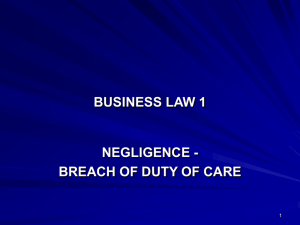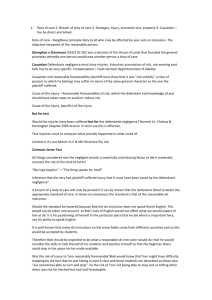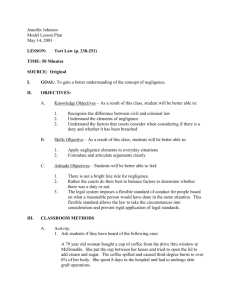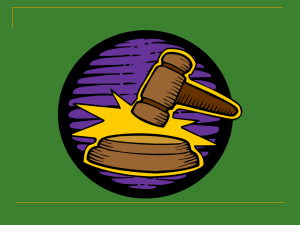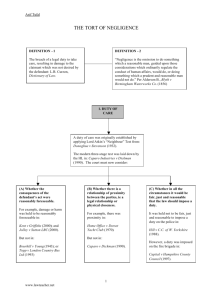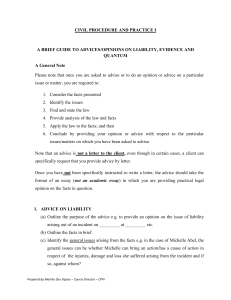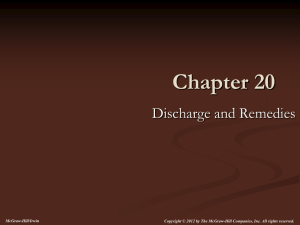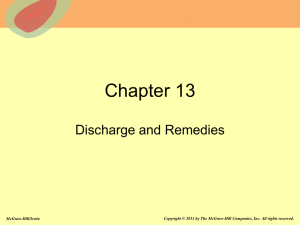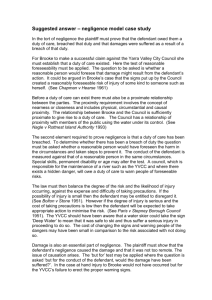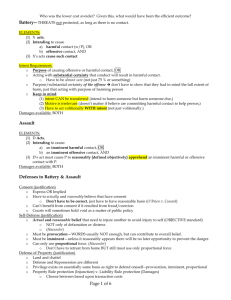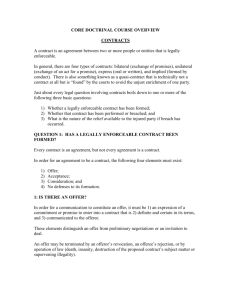Power Point presentation
advertisement
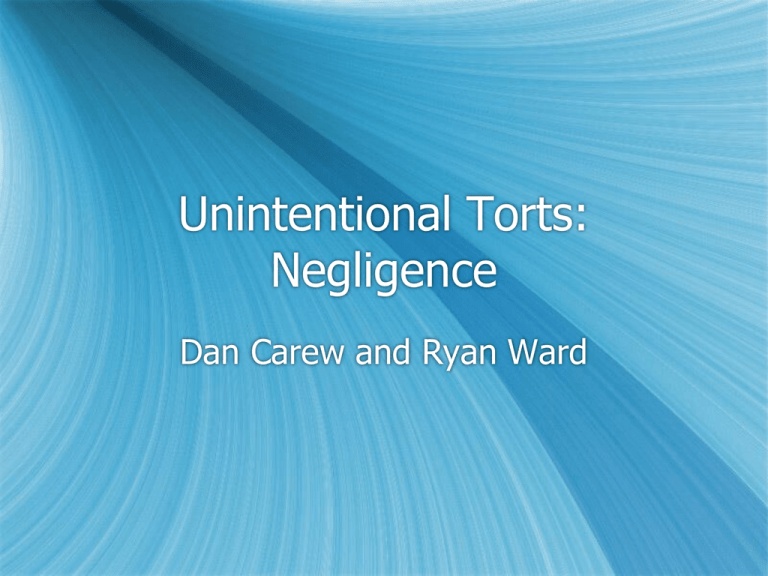
Unintentional Torts: Negligence Dan Carew and Ryan Ward Do Now: Balthazar is using headphones to listen to his Mp3 player while driving. He doesn’t like the song he is listening to (probably “Black & Yellow”) and looks away from the road to select a better song. He doesn’t see the car in front of him stop and crashes into it. The woman in the car that he hits suffers a broken leg and a concussion. Did he do anything wrong? What should he have done differently? C’mon, what’s up with those black rims!? What is negligence? Negligence can be defined as a failure to use reasonable care, resulting in damage or injury to another. In order to show that someone has acted negligently, you have to prove four elements: Duty Breach Causation Damages Duty or Legal Obligation The defendant had a legal duty or legal obligation to exercise due care to the plaintiff. Due care is the amount of care that a reasonable person would exercise under similar circumstances. The Reasonable Person A reasonable person would consider (1) the burden of taking precautions; (2) the likelihood of harm; and (3) the seriousness of the harm. Breach The defendant’s conduct violated that duty because: His or her conduct fell short of the standard of care. Or, in other words, he or she did not act like a reasonable person would have. Cause Cause In Fact: The breach actually caused an injury. Can you trace the injury back to the defendant’s actions? Proximate Cause: The connection between the breach and the injury was foreseeable and not too remote. Could the defendant have foreseen or guessed that his or her actions would cause an injury? Damages The plaintiff suffered actual damages (medical costs, lost wages, pain and suffering, etc.). Yolanda and Her Aggressive Puppy Yolanda’s dog Lucy is very aggressive and has bitten people in the past. One day she takes Lucy to the park and let’s her run free. Lucy runs around the corner and bites Aaron’s leg while he’s shooting hoops. Aaron is rushed to the hospital where he learns that he will need to stay overnight and have surgery. His medical bills reach $15,000 and he had to miss a week of work while his leg healed. The doctor said he’ll never have full use of his leg. Analyzing the Case Did Yolanda have a legal obligation? Did she breach that duty? Did her breach actually cause Aaron’s injury? Could she have foreseen that Lucy would bite someone like Aaron? Are there damages in this case? Kramer's Coffee Burn Fiasco ! While watching the videos, think about whether all of the elements of negligence are present. The Elements of Negligence Remember: All Four Elements Need to be Proved! Duty Breach Causation Damages Was Java City Negligent? What would Kramer argue? Can he prove all of the elements? What would Java City argue in its defense? What is their best argument? What does the judge need to consider? What if Kramer only showed 3 of the 4 elements? Liebeck v. McDonalds In 1994, a 79-year-old woman bought a cup of coffee from the drive thru window at McDonalds. She put the cup between her knees and tried to open the lid to add cream and sugar. The coffee spilled and caused second and third degree burns to over 16% of her body. She spent 8 days in the hospital and had to undergo very painful skin graft operations. A jury found that McDonalds was liable, and awarded her $160,000 in damages. The Radio Station Disaster Break into your groups and in your assigned roles, discuss the Radio Station hypothetical. The Ruling How did the judges rule? Was the radio station negligent or not?

